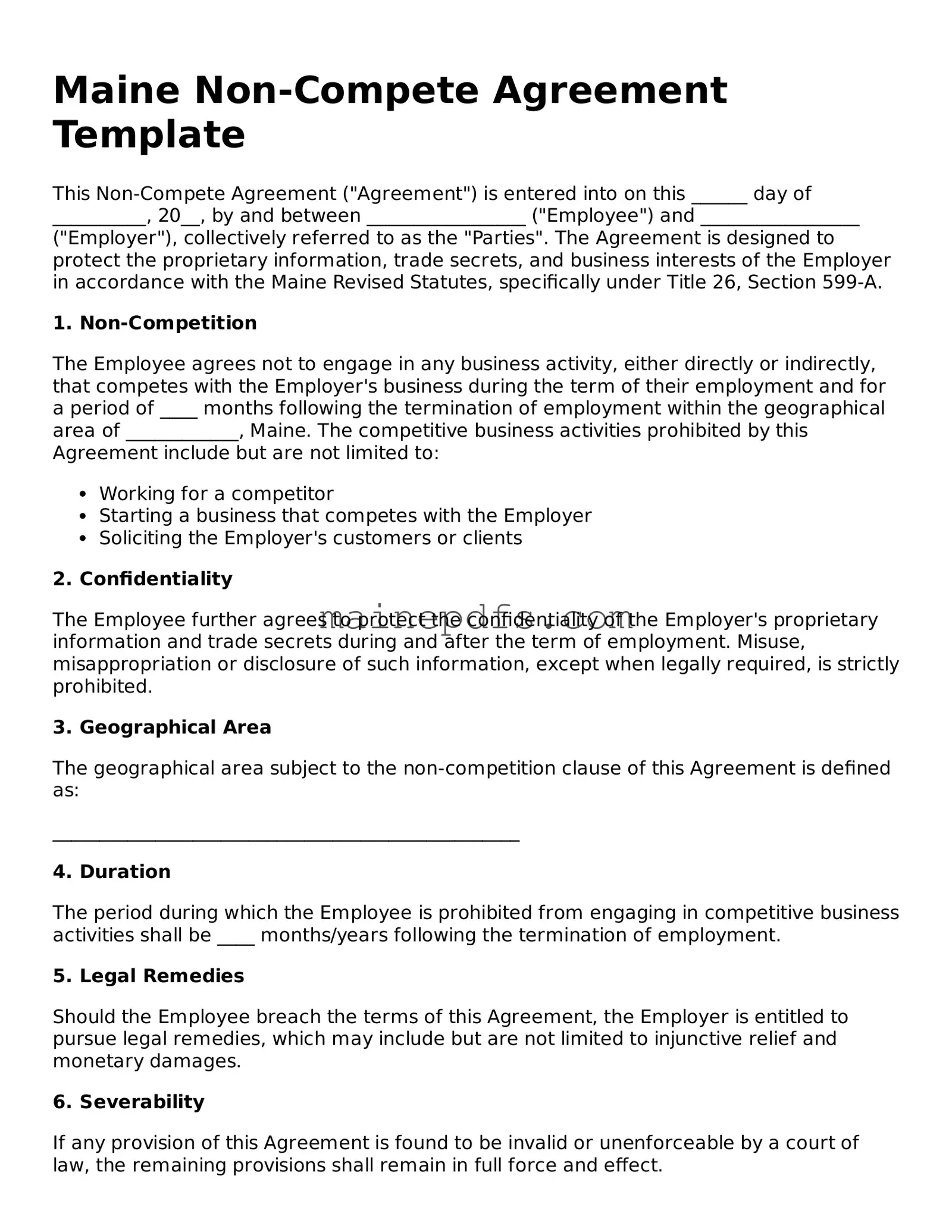Maine Non-Compete Agreement Template
This Non-Compete Agreement ("Agreement") is entered into on this ______ day of __________, 20__, by and between _________________ ("Employee") and _________________ ("Employer"), collectively referred to as the "Parties". The Agreement is designed to protect the proprietary information, trade secrets, and business interests of the Employer in accordance with the Maine Revised Statutes, specifically under Title 26, Section 599-A.
1. Non-Competition
The Employee agrees not to engage in any business activity, either directly or indirectly, that competes with the Employer's business during the term of their employment and for a period of ____ months following the termination of employment within the geographical area of ____________, Maine. The competitive business activities prohibited by this Agreement include but are not limited to:
- Working for a competitor
- Starting a business that competes with the Employer
- Soliciting the Employer's customers or clients
2. Confidentiality
The Employee further agrees to protect the confidentiality of the Employer's proprietary information and trade secrets during and after the term of employment. Misuse, misappropriation or disclosure of such information, except when legally required, is strictly prohibited.
3. Geographical Area
The geographical area subject to the non-competition clause of this Agreement is defined as:
__________________________________________________
4. Duration
The period during which the Employee is prohibited from engaging in competitive business activities shall be ____ months/years following the termination of employment.
5. Legal Remedies
Should the Employee breach the terms of this Agreement, the Employer is entitled to pursue legal remedies, which may include but are not limited to injunctive relief and monetary damages.
6. Severability
If any provision of this Agreement is found to be invalid or unenforceable by a court of law, the remaining provisions shall remain in full force and effect.
7. Entire Agreement
This Agreement constitutes the entire understanding between the Employee and the Employer regarding the subject matter herein and supersedes all prior agreements, understandings, negotiations, and discussions, whether oral or written.
8. Governing Law
This Agreement shall be governed by and construed in accordance with the laws of the State of Maine.
IN WITNESS WHEREOF, the Parties have executed this Agreement as of the first date written above.
Employee Signature: ___________________________________
Date: ________________
Employer Signature: ___________________________________
Date: ________________

